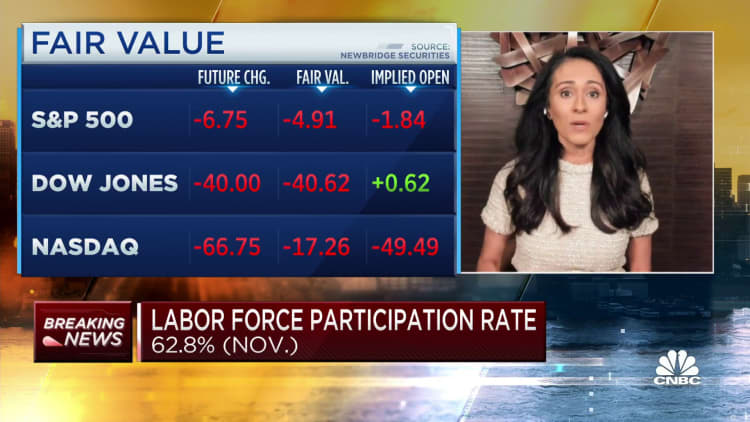
The S&P 500 rose on Friday to hit a new high for the year after the November jobs report and University of Michigan consumer survey data signaled a resilient economy and cooling inflation, fueling hopes for a so-called soft landing scenario.
The S&P 500 added 0.41% to settle at 4,604.37, while the Nasdaq Composite rose 0.45% to finish at 14,403.97. The Dow Jones Industrial Average gained 130.49 points, or 0.36%, to end at 36,247.87.
The S&P 500 posted its highest close of the year last week, but had yet to exceed its 2023 intraday high set in July until Friday, when it topped 4,609 in afternoon trading. The benchmark is now up about 20% on the year and trading at its highest level back to March 2022.

All the major averages finished the week with gains. The broad market index jumped 0.2% for the period, and the Dow finished marginally higher. Both indexes wrapped six winning weeks, their longest run since 2019. The Nasdaq advanced 0.7%.
The jobs report continues to portray an economy that "isn't on the brink of recession," while the combination of falling inflation expectations and a pick up in consumer sentiment support a soft landing outcome, said Michael Arone, chief investment strategist at State Street Global Advisors.
"As long as the soft landing outcome stays intact, the bias for stocks and risk assets remains positive," he said, noting that inflation coming down, as well as better labor supply-and-demand balance without a major uptick in unemployment are all positives for sentiment.
November's nonfarm payrolls report showed an unexpected drop in the unemployment rate. The jobless rate fell to 3.7% in November from 3.9% the prior month. It was expected to remain the same. The economy added 199,000 jobs, slightly ahead of the 190,000 estimate from Dow Jones and well ahead of the 150,000 jobs added in October.
The data first raised concerns that the economy was running too hot for inflation to cool enough for the Fed to start retreating from its high-rates policy. Some traders expect the Fed to start cutting rates as early as next spring, with its latest policy meeting set for Wednesday.
On the other hand, the monthly jobs report could also support the notion that the Fed is guiding the U.S. economy toward a soft landing — a steady economic recovery amid falling inflation. Average hourly earnings, seen as a leading indicator of inflation, rose about as expected in November as the economy added more jobs than the prior month.
Meanwhile, a closely watched University of Michigan survey showed inflation expectations drop and consumer sentiment jump in December to it highest level since July.
These data points all help support the thesis that the Fed is likely done with its rate hiking cycle, said Mona Mahajan, Edward Jones senior investment strategist.
Shares of Boeing, FedEx, and Costco hit new highs for the year on Friday as investors bet the economy would skirt a recession.
Correction: A previous version misstated the S&P 500's week-to-date performance.

